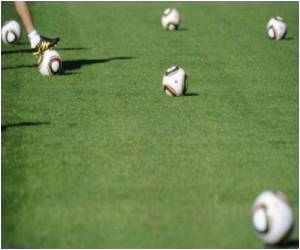
He and his colleagues at the Department of Physical Education and Sport Sciences at the University of Thessaly, Nikos Zourbanos, Evangelos Galanis, and Yiannis Theodorakis conducted a meta-analysis of 32 sport psychological studies on the subject with a total of 62 measured effects.
As expected, the analysis revealed that self-talk improves sport performance, but the researchers teased out more - different self-talk cues work differently in different situations.
For tasks requiring fine skills or for improving technique "instructional self-talk", such as a technical instruction ("elbow-up" which Hatzigeorgiadis coaches beginner freestyle swimmers to say) is more effective than "motivational self-talk" (e.g., "give it all"), which seems to be more effective in tasks requiring strength or endurance, boosting confidence and psyching-up for competition.
Some other findings are that self-talk has a greater effect on tasks involving fine skills (such as sinking a golf ball) rather than gross skills (e.g., cycling); probably because self-talk is a technique which mostly improves concentration.
Self-talk is more effective for novel tasks rather than well-learned tasks, because it is easier to improve at the early steps of learning. Nevertheless, both beginners and experienced athletes can benefit, especially when they practice the self-talk technique.
Advertisement
The main goals behind self-talk, like other techniques such as visualization to "rehearse" a performance or meditation to improve focus and relaxation, are twofold, Hatzigeorgiadis said.
Advertisement
The meta-analysis can help sports psychologists and athletes refine their training. But the strategy has implications beyond the playing field.
"The mind guides action. If we succeed in regulating our thoughts, then this will help our behaviour," Hatzigeorgiadis said.
"The goal of being prepared is to do the best you can do," he added.
Their findings will be published in an upcoming issue of Perspectives on Psychological Science, a journal of the Association for Psychological Science.
Source-ANI










